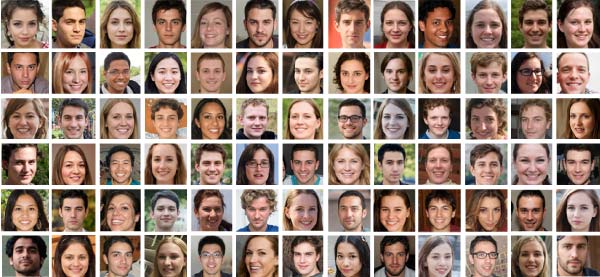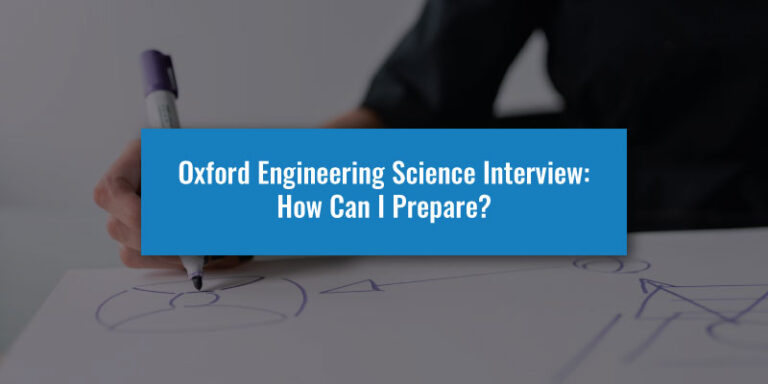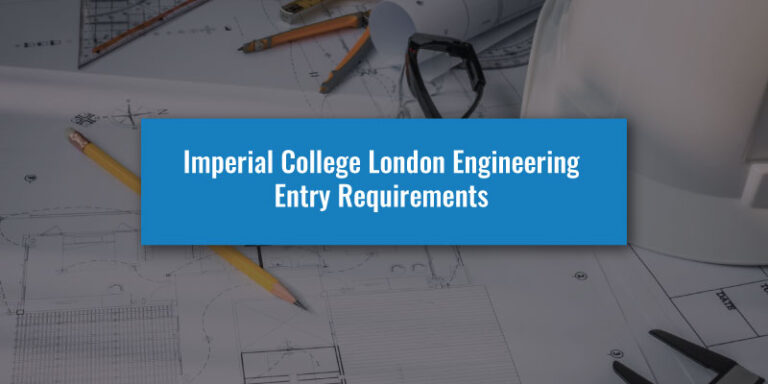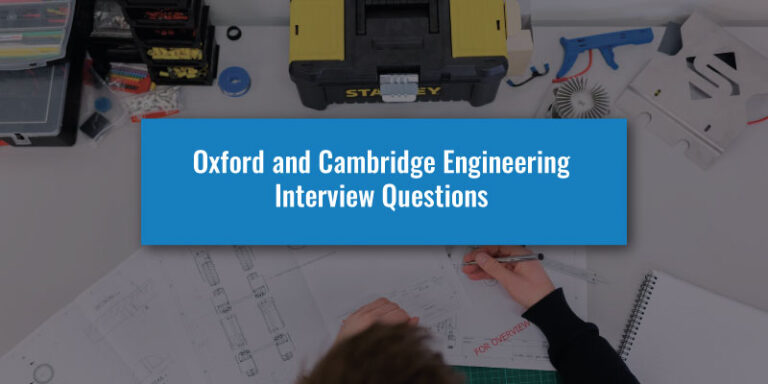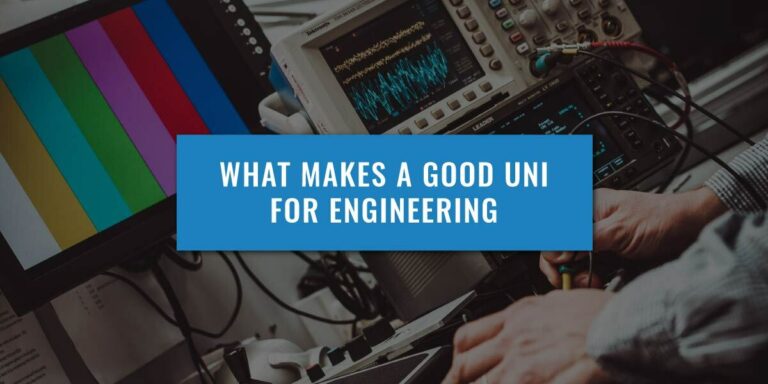If you are thinking of studying Engineering at Imperial College London, it is beneficial to know more about the university and what it has to offer to you.
In this Imperial Engineering guide, we cover the background information you need to understand what studying Engineering at Imperial is really like, from the application process to career prospects.
About Imperial Engineering
The Faculty of Engineering is one of three faculties within Imperial College London.
The Faculty seeks to provide international leadership in Engineering research and education and is widely recognised as a world leading Engineering school. The departments consistently excel in prominent league table rankings, while the university as a whole enjoys similar success.
World class education and fundamental research is offered across the full range of Engineering disciplines, so that graduates possess the skills, knowledge, and attitudes necessary to become international leaders in Engineering industry and academia.
Students are provided with an outstanding education in Engineering, that brings together cutting-edge researchers, exceptional teachers, and state-of-the-art facilities in inspiring physical and virtual environments. Students at Imperial will meet, work, and live with people studying every aspect of Engineering.
The Faculty is home to over 1,764 staff and 7,929 students.
All ten of the Engineering departments are located on a single campus in South Kensington, giving a concentration of talent that creates a stimulating and vibrant research culture, which promotes multidisciplinary collaborations and attracts internationally leading researchers and scholars.
Triple your chances of getting into Imperial with UniAdmissions
Over the last decade, we’ve helped hundreds of students get their offer at their dream university at Imperial, Oxford, Cambridge and more. Through our mixture of tutoring, resources, courses and general guidance, we’ve achieved unrivalled success rates.
Discover our Imperial Full-Blue Programme by clicking the button below to enrol and triple your chances of success.
Imperial Engineering Degrees
Aeronautics was first taught at Imperial College in 1909, with the first chair established in 1920. Since then, the department has only gone from strength to strength.
The study programmes offered share a common core over years 1-3, with students tailoring their programme of studies to their interests by choosing from a wide offering of elective module or choosing to specialise in spacecraft Engineering, or by completing a year-in-industry or year-abroad.
The teaching programmes continue to attract the best students from all over the world, with undergraduate minimum A-Level admission criteria being A*A*A.
If you are taking four A-Levels, you will typically receive an offer of A*AAA. Both of these offers are to include:
- A* in Mathematics
- A/A* in Physics (A* is required if you are taking three A-Levels. At least an A is required if applying with four A-Levels)
- A in a third and/or fourth subject
Further Mathematics is recommended but not essential.
The undergraduate Aeronautics courses offered by Imperial are:
- MEng in Aeronautical Engineering
- MEng in Aeronautical Engineering with a Year Abroad (four years)
- MEng in Aeronautical Engineering with a Year Abroad (five years)
- MEng Aeronautical Engineering with a Year in Industry
- MEng Aeronautics with Spacecraft Engineering
The Department of Bioengineering at Imperial, is leading the bioengineering agenda both nationally and internationally, advancing the frontiers of knowledge in the disciplines three main areas:
- Biomedical Engineering – developing devices, techniques, and interventions for human health
- Biological Engineering – solving problems related to the life sciences and their applications for health
- Biomimetics – using the structures and functions of living organisms as models for the design and Engineering of materials and machines.
As a Bioengineer you will study many subjects including Engineering Mathematics, mechanics, Electrical Engineering, computing, and programming, anatomy and physiology, cell and molecular biology, chemistry and design and professional skills.
The department offers two courses, the MEng Biomedical Engineering and MEng Molecular Bioengineering.
For those wanting to apply to the MEng Biomedical Engineering course, the minimum A-Level requirement is A*AA.
This is to include:
- A* in Mathematics
- A in Physics
- A in a third subject
As for anyone wanting to apply for MEng Molecular Bioengineering the minimum A-Level requirement is also A*AA.
This is to include:
- A* in Mathematics
- A in Chemistry
- A in a third subject
The Department of Bioengineering also offers a one-year programme for current Medical students interested in learning more about Bioengineering as part of their training – the Intercalated BSc Medical Sciences with Biomedical Engineering.
Imperial’s Department of Chemical Engineering is renowned as one of the world-leading institutions in both the teaching and research of Chemical Engineering and technology.
The Department is one of the oldest Chemical Engineering in the country and first offered undergraduate courses in 1937.
Offering an integrated four-year programme leading to the award of an MEng degree in Chemical Engineering. One stream of this course involved a year spent abroad studying at a partner university (in Australia, Germany, Singapore, Spain, Switzerland, or the USA).
As well, Imperials offers a joint course in Chemical Engineering with Nuclear Engineering, delivered jointly with the Departments of Materials and Mechanical Engineering.
The minimum entry requirements for the three courses are the same, with the standard offer being A*A*A.
This is to include:
- A* in Chemistry
- A* in Maths
- A in Biology, Business Studies, Economics, Further Mathematics or Physics
If you are studying four A-Levels it is preferred the fourth to be in Physics, Biology, Further Mathematics, Business Studies, or Economics at grade A.
Civil Engineering is a broad discipline that covers many aspects of daily lives. From the provision of safe drinking water to the design of transport systems, and the development of structures that can withstand earthquakes.
Civil Engineers have the ability to improve the quality of life for many people, and indeed save lives. As well, Civil Engineers aim to build in a sustainable way whilst protecting the natural environment.
In Civil Engineering, students gain valuable contact with the industry through visiting lectures, field trips, the Constructionarium, the creative design course, as well as group and individual projects.
Years one and two offer a broad education in the theoretical principles and conceptual fundamentals that underpin the Civil Engineering profession.
Imperial offers two MEng Civil Engineering degrees, these are: Civil Engineering and Civil Engineering with a Year Abroad.
The minimum entry requirements are A*A*A or A*AAA overall, to include:
- A* in Mathematics
- A/A* in Physics (A* is required if you are taking three A-Levels. At least an A is required if applying with four A-Levels)
- A in a third and/or fourth subject
Computing courses are held wholly within the Department of Computing. The degree programmes are designed to ensure that you will have detailed exposure to both the theoretical and practical aspects of Computing.
The Department offers both a three-year BEng programmed and a four-year integrated MEng programme in Computing. Both involve substantial group and individual project work. The MEng has the added benefit of an industrial placement, and the opportunity to choose from a range of Master’s level elective modules to gain further exposure.
The courses available to you are:
- Computing BEng
- Computing MEng
- Computing (Artificial Intelligence and Machine Learning)
- Computing (Visual Computing and Robotics)
- Computing (International Programme of Study)
- Computing (Management and Finance)
- Computing (Software Engineering)
- Computing (Security and Reliability)
The minimum entry requirements for all the courses is A*A*A to include:
- A* in Mathematics
- A, A* in two further subjects
| Recommended subjects | Useful subjects |
| Computer Science | Ancient Language |
| Physics | Biology |
| Chemistry | |
| Economics | |
| Electronics | |
| English Literature | |
| History | |
| Languages | |
| Law | |
| Philosophy | |
| Politics | |
| Psychology |
As well there is a joint Mathematics and Computer Science course offered by the Department of Computing and the Department of Mathematics. With the choice of a three-year BEng course, or a four-year MEng.
Design engineers are problem solvers who bridge the gap between traditional Engineering and design. It is a discipline which draws on knowledge of manufacturing techniques, product development, technical design, and rapid prototyping to bring new innovations to the market.
The MEng in Design Engineering focuses on the design of advanced products, services, experiences, and systems across the breadth of Engineering and design.
You will be able to develop a range of fundamental design and Engineering skills, with a particular emphasis on creativity, computer-aided Engineering tools, optimisation, human factors, design process, and the enterprise skills and industrial experience necessary to launch brand new products to market.
- A* in Mathematics
- A, A in two further subjects
The Department of Earth Science and Engineering brings together ground-breaking research and innovative teaching in geology, geophysics, mineral and energy resources, environmental science, planetary science, and computational modelling.
The science and Engineering behind understanding and solving the challenge of sustaining natural resources while protecting the environment lie at the heart of Earth Science.
An interdisciplinary subject which encompasses physics, chemistry, mathematics, and other sciences.
The Department offers nine courses, split into three-year BSc courses and four-year MSci courses.
Three-year courses:
- BSc Geology
- BSc Geophysics
- BSc Earth and Planetary Science
Four-year courses:
- MSci Geology
- MSci Geology with a Year Abroad
- MSci Geophysics
- MSci Geophysics with a Year Abroad
- MSci Earth and Planetary Science
- MSci Earth and Planetary Science with a Year Abroad
Entry Requirements
- BSc Geology – AAA to include at least two of: Biology, Chemistry, Geography, Geology, Mathematics, Physics
- BSc Geophysics – AAA to include A in Mathematics and Physics
- BSc Earth and Planetary Science – AAA to include A in Mathematics and A in Biology, Chemistry, Geography, Geology or Physics
- MSci Geology – AAA to include at least two of: Biology, Chemistry, Geography, Geology, Mathematics, Physics
- MSci Geology with a Year Abroad – AAA to include at least two of: Biology, Chemistry, Geography, Geology, Mathematics, Physics
- MSci Geophysics – AAA to include A in Mathematics and Physics
- MSci Geophysics with a Year Abroad – AAA to include A in Mathematics and Physics
- MSci Earth and Planetary Science – AAA to include A in Mathematics and A in Biology, Chemistry, Geography, Geology or Physics
- MSci Earth and Planetary Science with a Year Abroad – AAA to include A in Mathematics and A in Biology, Chemistry, Geography, Geology or Physics
The Department’s key objectives are:
- to conduct internationally leading, impactful research that supports multidisciplinary and collaboration
- to deliver high quality research-led, career-ready education
- to attract and support a diverse community of talented staff and students
There are two different pathways available to students in the Department of Electrical and Electronic Engineering – with those being Electrical and Electronic Engineering, or Electronic and Information Engineering.
There are four courses under the Electrical and Electronic Engineering umbrella, they are:
- BEng Electrical and Electronic Engineering
- MEng Electrical and Electronic Engineering
- MEng Electrical and Electronic Engineering with a Year Abroad
- MEng Electrical and Electronic Engineering with Management
As for the Electronic and Information Engineering side, there are three courses to choose from:
- BEng Electronic and Information Engineering
- MEng Electronic and Information Engineering
- BEng Electronic and Information Engineering with a Year Abroad
The entry requirements for all seven courses are the same.
The minimum A-Level entry requirements for all of the courses is A*A*A to include:
- A* in Mathematics
- A*/A in Physics (A* is required if applying with three A-Levels. AT least an A is required if applying with four A-Levels)
- A in a third and/or fourth subject
Recommended subjects are: Further Mathematics (strongly encouraged but not essential), Chemistry, Computer Science/Computing, Design and Technology and Electronics.
Materials Science is the study of everything around us. There are millions of different materials – some natural, others man-made – these materials make us who we are.
Innovative experimental approaches give us the ability to directly construct nanoscale objects with increasing control. New modelling techniques are bringing quantum mechanical and theoretical physics ideas away from single atoms and molecules into the nano-world.
There are five courses to choose from when applying to the Department of Materials at Imperial – they are:
- BEng Materials Science and Engineering
- MEng Materials Science and Engineering
- MEng Materials with Nuclear Engineering
- BEng Materials with Management
- MEng Biomaterials and Tissue Engineering
The minimum A-Level entry standards for all of the courses is AAA to include:
- A in Mathematics
- A in Chemistry or Physics
- A in a useful subject
Useful subjects that Imperial recommends are:
- Biology
- Computing
- Design and Technology
- Economics
- Electronics
- English Language
- English Literature
- Further Mathematics
- Geography
- History
- Languages
- Philosophy
- Politics
- Psychology
The final department of the ten that make up the Faculty of Engineering at Imperial.
One of the world’s leading centres for the study of Mechanical Engineering, which has a distinguished tradition of excellence in teaching, research, and practice, bringing together internationally leading staff, exception students and state-of-the-art facilities.
You will be attending lectures, tutorials, workshops, and laboratory sessions in a number of areas including thermofluids, materials, mechanics, dynamics, stress analysis and design.
The department offers six courses, these are:
- MEng Mechanical Engineering
- MEng Mechanical Engineering with a Year Abroad
- MEng Mechanical Engineering with a Year in Industry
- MEng Mechanical Engineering with a Year in Industry and a Year Abroad
- MEng Mechanical with Nuclear Engineering
- MEng Mechanical Engineering with Nuclear Engineering and a Year in Industry
The entry requirements for all of the courses is the same, with the minimum A-Levels expected being A*A*A. This is to include:
- A* in Mathematics
- A/A* in Physics (A* is required if applying with three A-Levels. At least an A is required if applying with four A-Levels)
- A in a third and/or fourth subject
Where could your engineering degree take you?
All the Engineering departments set very high aims for their undergraduate students. Their goal is to shape your professional future as engineers, to nurture your creativity and to help you excel in your chosen field.
Aeronautics
There is a high demand for Aeronautics graduates not only within the aeronautical industry but also across a broad range of employment types, including but not limited to automotive, environmental, and biomedical disciplines, Engineering consultancy and even financial analysis.
Bioengineering
Bioengineering graduates will be well equipped for employment in the growing industrial sector devoted to healthcare, hospitals and clinics, research institutes and government or other organisation concerned with the design and regulation of medical materials and equipment.
Chemical Engineering
Major recruiters of Chemical engineers include the process and manufacturing industries related to pharmaceuticals, petroleum and petrochemicals, healthcare, design and consultancy, speciality chemicals, biotechnology, advanced materials, polymers, business services, food processing and environmental issues, among others.
The broad scope of career choice stems from the fundamental nature of Chemical Engineering studies, which include a profound knowledge of mathematics and general physical, chemical and biological sciences used in an integrated way.
Civil Engineering
Many of Imperial’s Civil Engineering graduates go on to work on high-profile national and international Engineering projects, which have recently included China’s Three Gorges Dam, London’s Wembley Stadium, and the Antarctic Research Station.
Computing
Although it is impossible to predict exactly how computers will develop and be used, it is safe to say that the science of Computing will remain a vitally important part of modern civilisation, being responsible for many of the most important changes to the world we live.
The Department of Computing at Imperial has close working relationships with major graduate employers such as Microsoft, IBM, Hewlett-Packard, and BT.
Design Engineering
Graduates develop a range of fundamental design and Engineering skills, with a particular emphasis on creativity, computer-aided Engineering tools, optimisation, human factors, design process, and the enterprise skills and industrial experience necessary to launch brand new products to the market.
Earth Science and Engineering
The most obvious career choices are in the exploration and production departments of oil and mining companies, or environmental and Civil Engineering companies. Many of Imperial’s Earth Science graduates have started their careers as field Engineers or geologists working for companies such as Schlumberger or URS Corporation.
Electrical Engineering
Opportunities for Electrical and Electronic Engineering graduates exist across many sectors: computer systems and information technology, medical electronics, consumer electronics, avionics, robotics, mobile communication networks, power generation, defence and security, transport, design consultancy, management consultancy and finance.
Materials Engineering
Most graduates opt for careers in industry or in research establishments associated with one or more of the main subject areas. These include metals and alloys, ceramics, glasses, polymers, composites, and electrical materials.
Mechanical Engineering
Many graduates complete their initial industrial training and then take up positions in research and development, design, production, or plant management. As engineers, graduates find placements in companies such as Royal Air Force, Alstom, Ricardo Group, Railtrack, Royal Navy or in the automotive industry in companies such as Ford Motor Company.
Conclusion
Imperial Engineering has a lot to offer you, with so many different courses available you will be able to find one that is suited to your needs.
Make sure to familiarise yourself with the different degrees that are available and their individual requirements as there are clear differences between them.
With strong graduate prospects and career opportunities, studying an Engineering degree at Imperial is highly regarded.
If you are applying to Imperial, our expert tutors will help you achieve Engineering success.
Applying to Imperial College London is immensely competitive, and you must give yourself the best chance of success. We help you craft the perfect Personal Statement, achieve a highly competitive ESAT score and teach you how to Interview effectively – covering all areas of your Imperial application.
Discover our Imperial Full-Blue Programme for comprehensive admissions support by clicking the button below to enrol and triple your chances of success.

